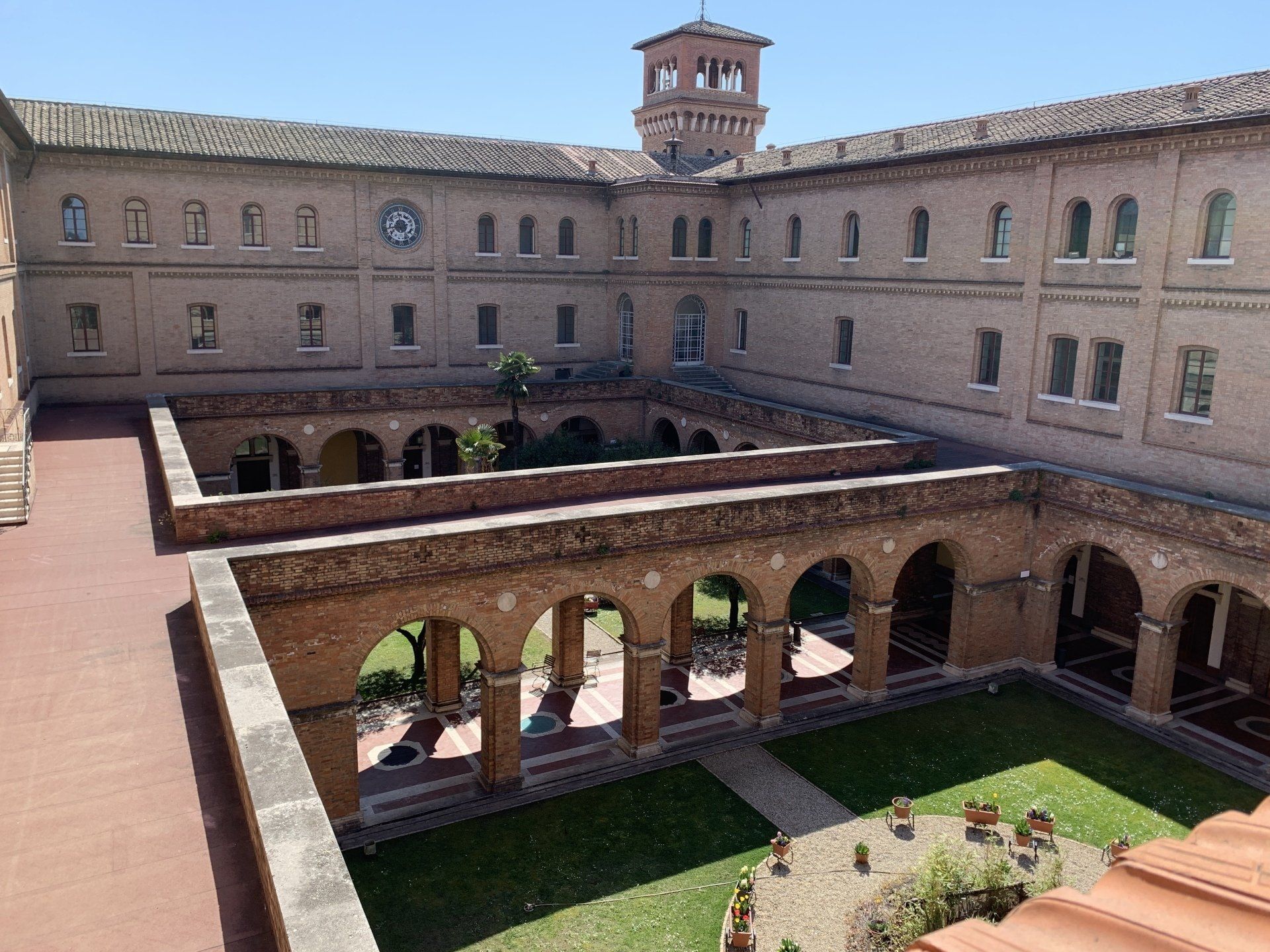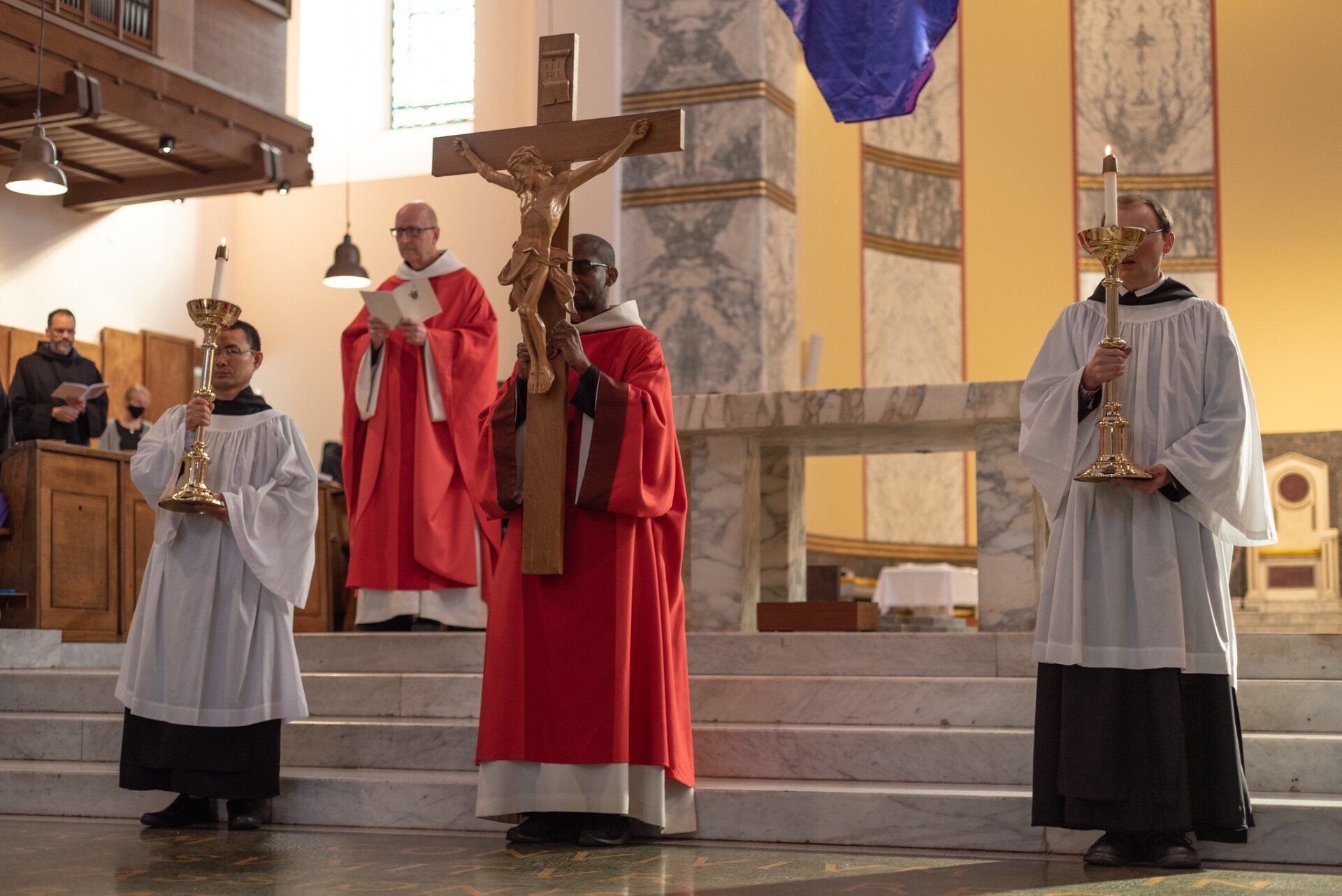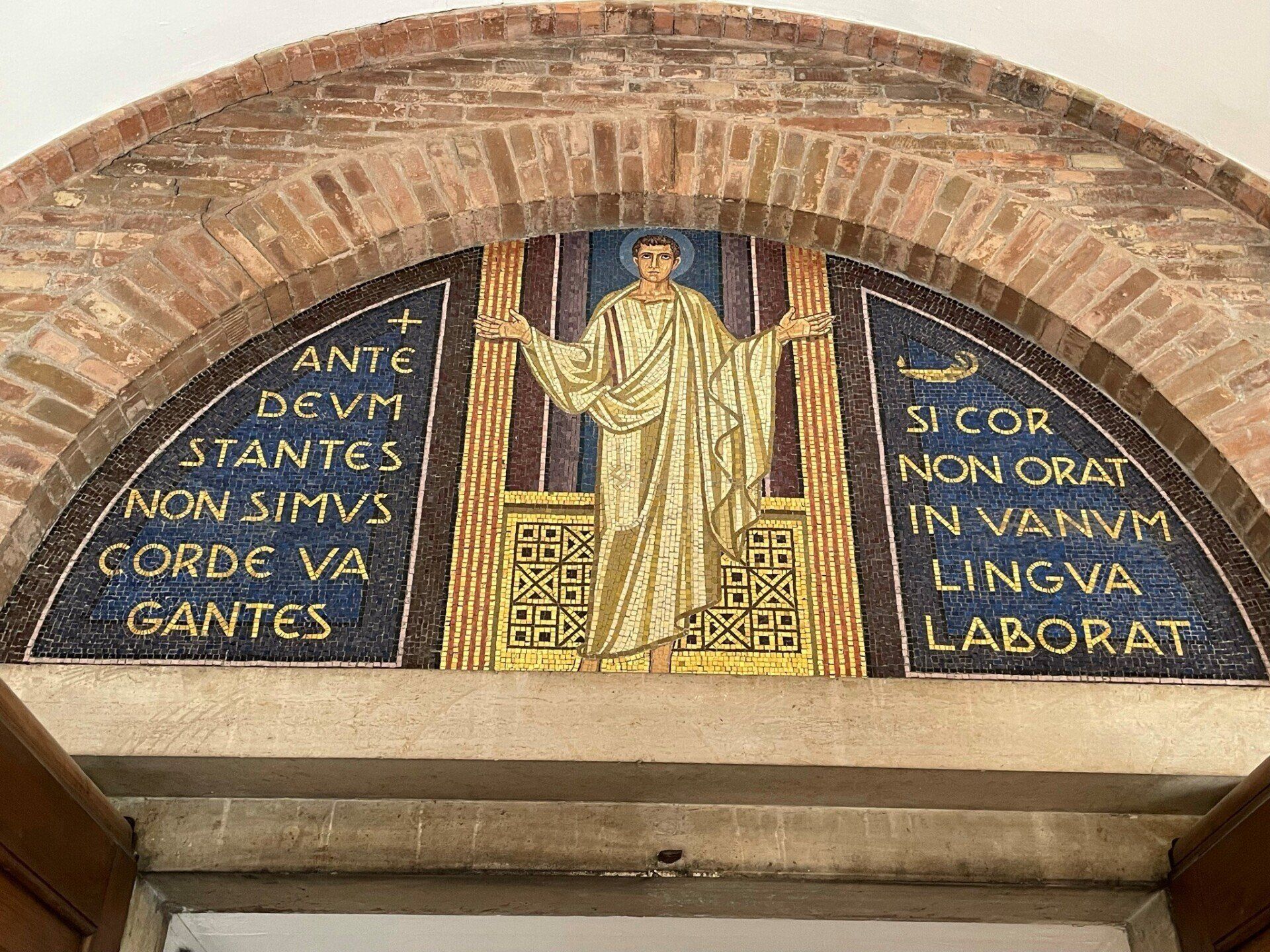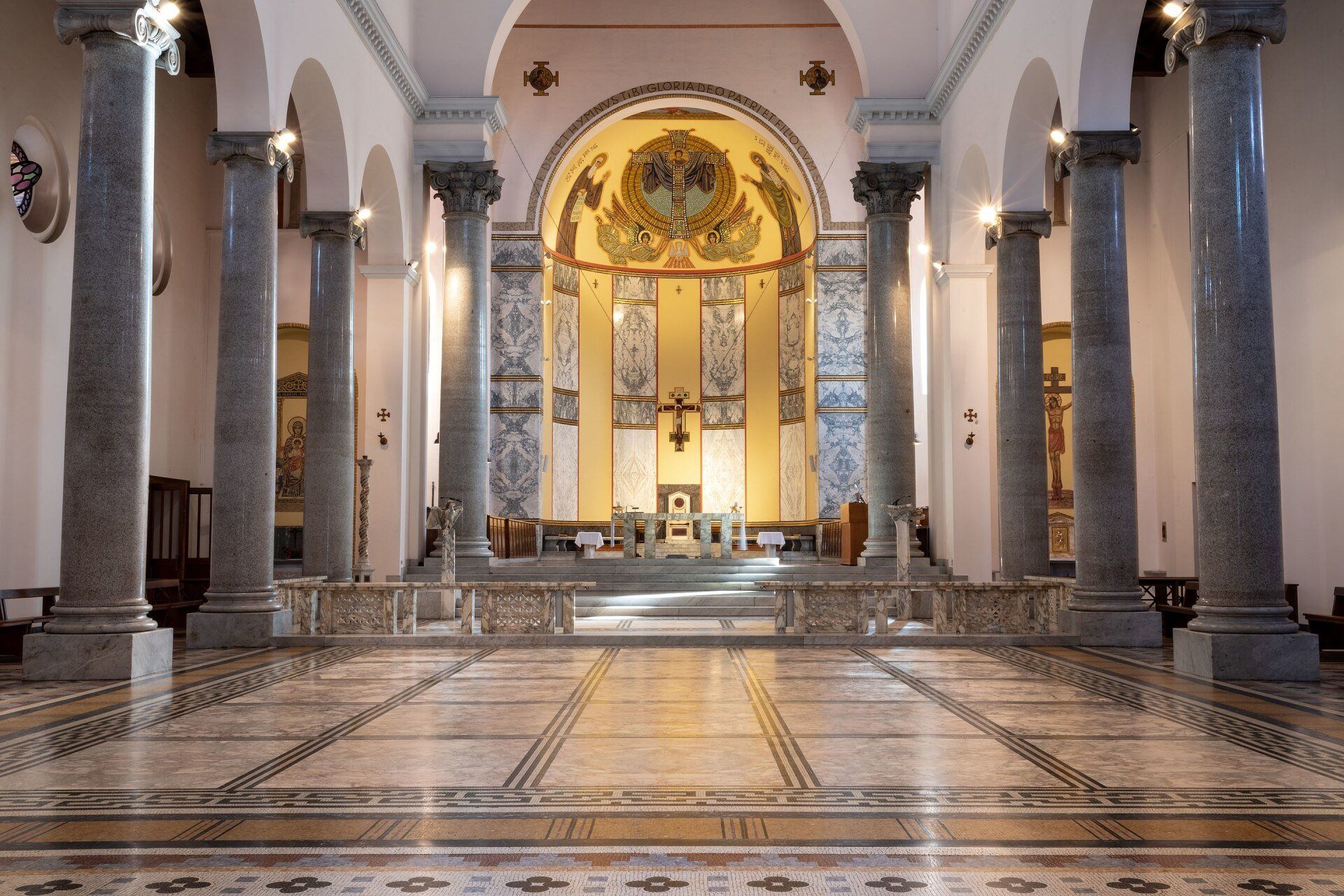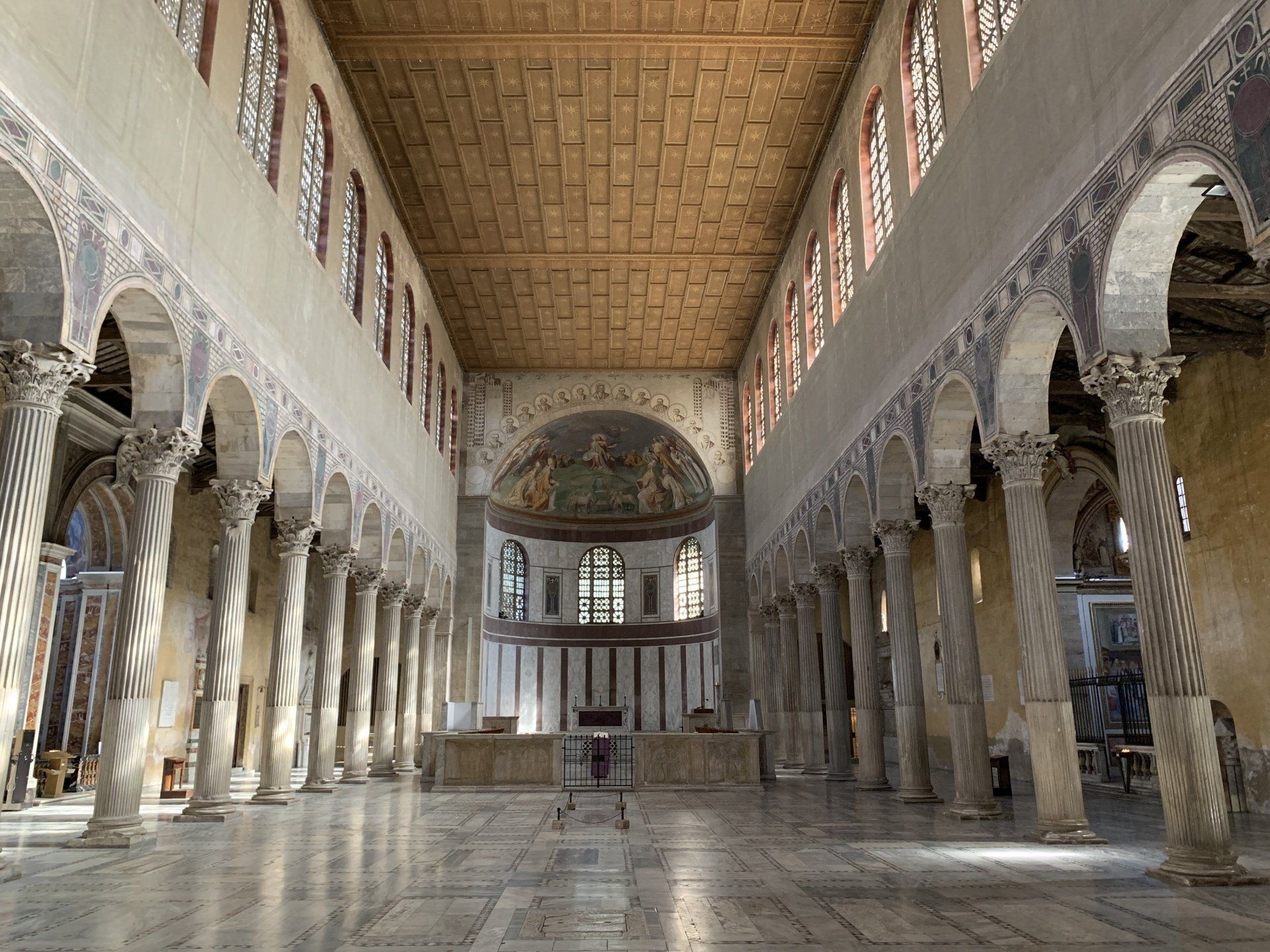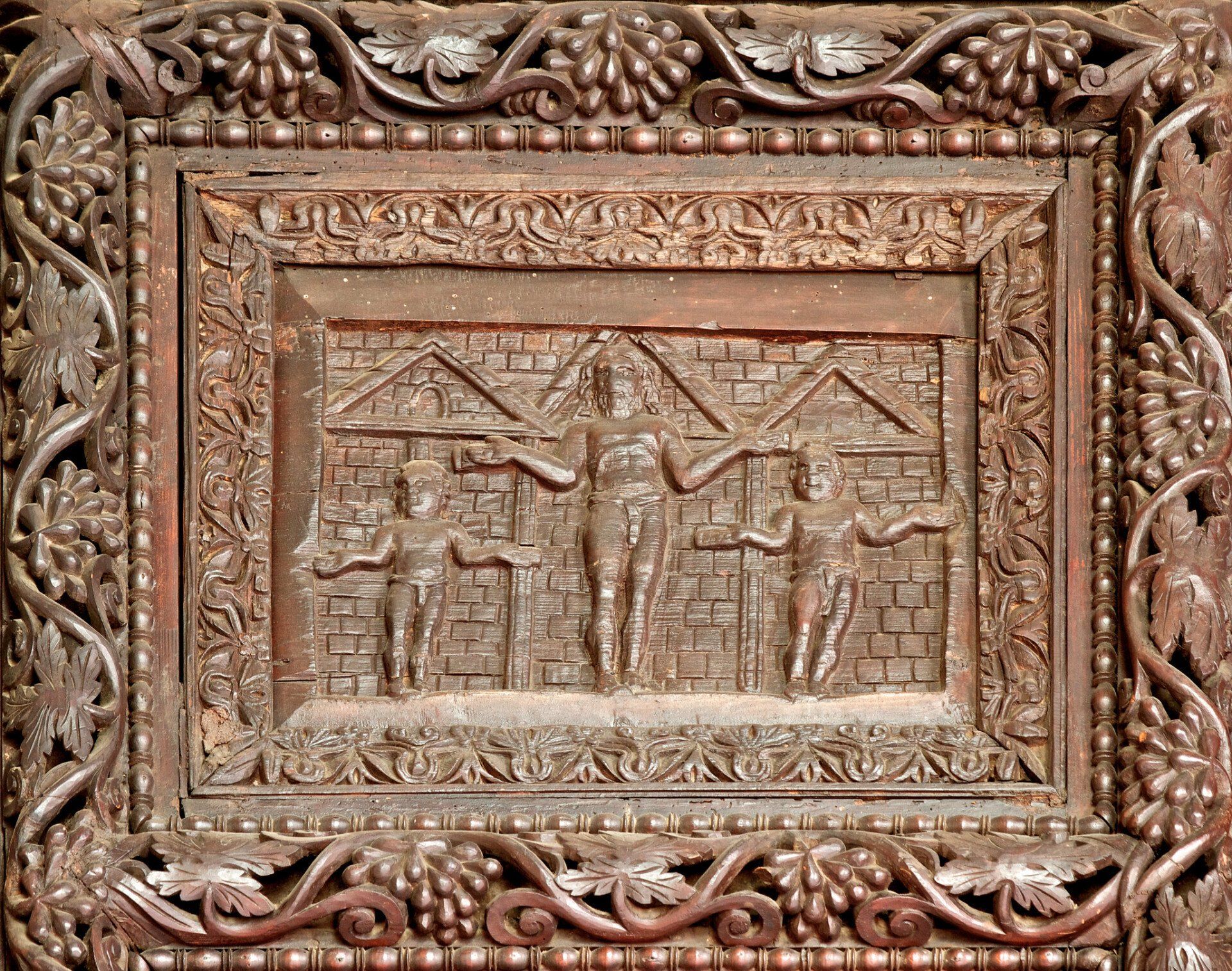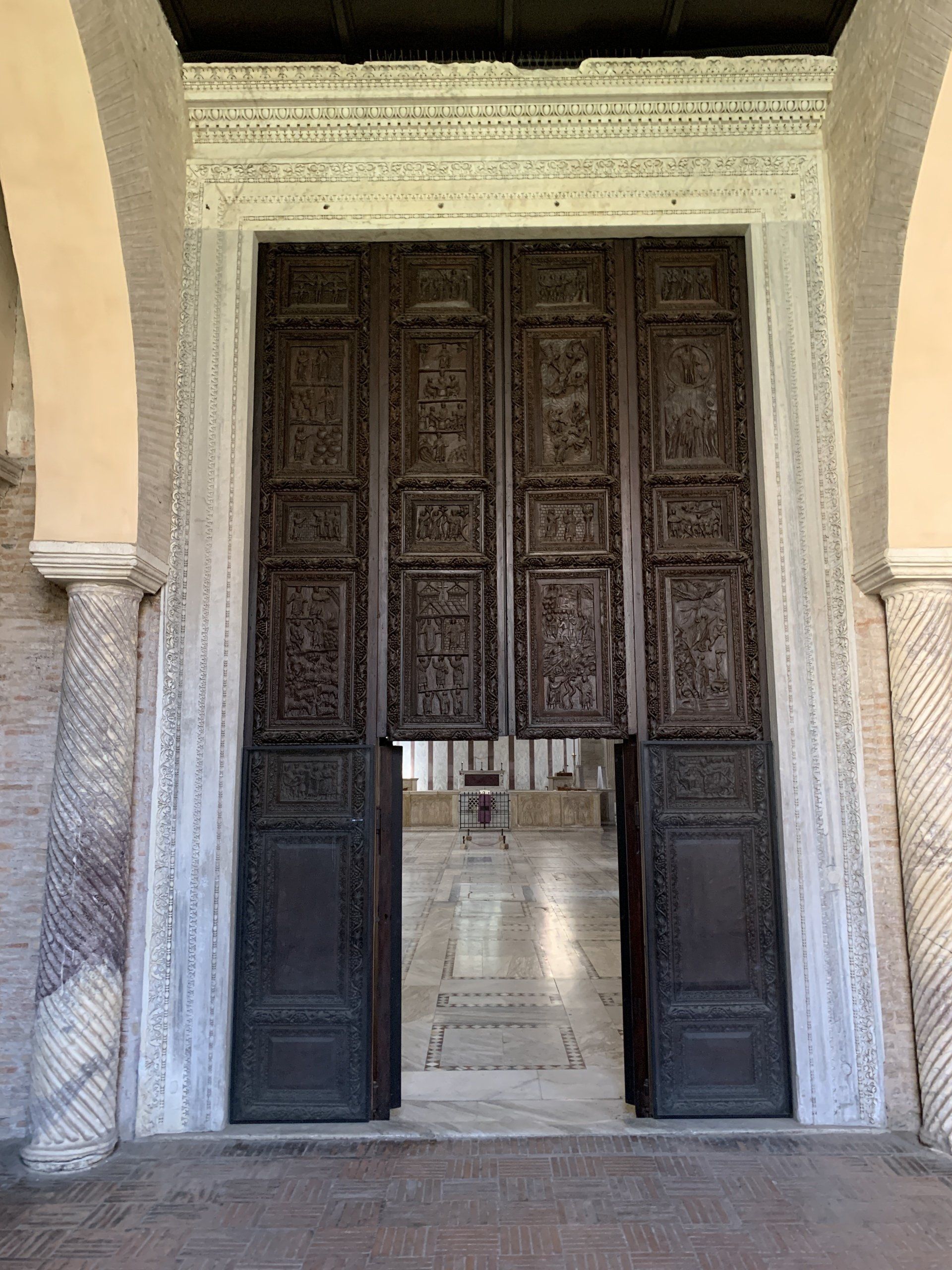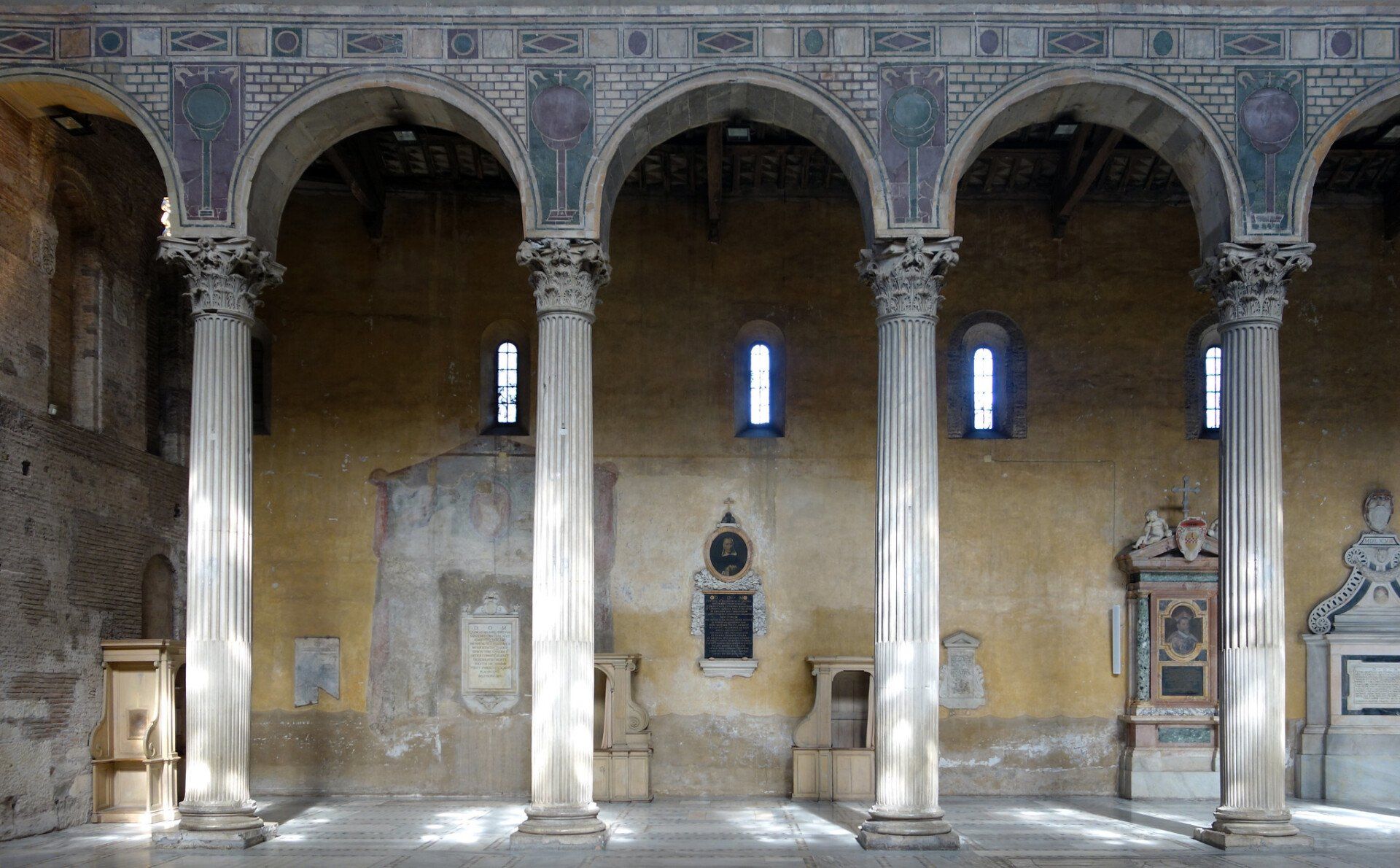Rome: A Lenten Pilgrimage
__________________________________________________
1: AVENTINE
led by Dom Brendan Thomas
3 Mornings in Lent 10am to 1pm: Wednesday 23rd March 10.00am
or online afterwards
Retreat Day Timetable
For those who join us live via Zoom
Please feel free to join in as little or as much as you are able.
From 9.45 connect via Zoom to begin at:
10.00am LIVE Opening prayers and introduction.
AM VIDEO REFLECTIONS – Watch at your own time (website).
12.00 noon LIVE Connecting together with Zoom for final thoughts, conversation and closing prayer to finish by 13.00
Welcome to this online Retreat. We hope you find these reflections helpful.
1. Sant' Anselmo and St Benedict
-
St Benedict on Lent
The Rule of St Benedict
Chapter 49. The Observance of Lent
The life of a monk ought to be a continuous Lent. Since few, however have the strength for this we urge the entire community during these days of Lent to keep its manner of life most pure and to wash away in this holy season the negligences of other times. This we can do in a fitting manner by refusing to indulge evil habits and by devoting ourselves to prayer with tears, to reading, to compunction of heart and self-denial.
During these days therefore, we will add to the usual measure of our service something by way of private prayer and abstinence from food or drink so that each of us will have something above the assigned measure to offer God of his own will with the joy of the Holy Spirit (1 Thess 1:6). In other words, let each one deny himself some food, drink, sleep, needless talking and idle jesting, and look forward to holy Easter with joy and spiritual longing.
Everyone should, however, make known to the abbot what he intends to do, since it ought to be done with his prayer and approval. Whatever is undertaken without the permission of the spiritual father will be reckoned as presumption and vainglory, not deserving a reward. Therefore, everything must be done with the abbot's approval.
-
Wellbeing and Woe: Julian of Norwich
“During our lifetime here we have in us a marvelous mixture of both well-being and woe. We have in us our risen Lord Jesus Christ, and we have in us the wretchedness and the harm of Adam's falling. Dying, we are constantly protected by Christ, and by the touching of his grace we are raised to true trust in salvation.”
-
The Staretz
Yet the beginning remains present throughout: our Father--we know that he is with us to hold us in his hand and save us. In his book of spiritual exercises, Father Peter-Hans Kolvenbach, the Superior General of the Jesuits, tells the story of a staretz, or spiritual advisor of the Eastern Church, who yearned "to begin the Our Father with the last verse, so that one might become worthy to finish the prayer with the initial word--'Our Father.'" In this way, the staretz explained, we would be following the path to Easter.
"We begin in the desert with the temptation, we return to Egypt, then we travel the path of the Exodus, through the stations of forgiveness and God's manna, and by God's will we attain the promised land, the kingdom of God, where he communicates to us the mystery of his name:'Our Father'" (Der osterliche Weg, pp. 65f.).
2. Santa Sabina and St Jerome
-
St Jerome on Refugees
From the Preface to Book vii of his Commentary on Ezekiel.
The Commentary on Ezekiel is in fourteen Books. It was dedicated to Eustochium, and was written between the years 410 and 414. The Prefaces gain a special interest from their descriptions of the sack of Rome by Alaric and the consequent immigration into Palestine.
There is not a single hour, nor a single moment, in which we are not relieving crowds of brethren, and the quiet of the monastery has been changed into the bustle of a guest house. And so much is this the case that we must either close our doors, or abandon the study of the Scriptures on which we depend for keeping the doors open. And so, turning to profit, or rather stealing the hours of the nights, which, now that winter is approaching, begin to lengthen somewhat, I am endeavouring by the light of the lamp to dictate these comments, whatever they maybe worth, and am trying to mitigate with exposition the weariness of a mind which is a stranger to rest. I am not boasting, as some perhaps suspect, of the welcome given to the brethren, but I am simply confessing the causes of the delay. Who could boast when the flight of the people of the West, and the holy places, crowded as they are with penniless fugitives, naked and wounded, plainly reveal the ravages of the Barbarians? We cannot see what has occurred, without tears and moans. Who would have believed that mighty Rome, with its careless security of wealth, would be reduced to such extremities as to need shelter, food, and clothing? And yet, some are so hard-hearted and cruel that, instead of showing compassion, they break up the rags and bundles of the captives, and expect to find gold about those who are nothing than prisoners. In addition to this hindrance to my dictating, my eyes are growing dim with age and to some extent I share the suffering of the saintly Isaac: I am quite unable to go through the Hebrew books with such light as I have at night, for even in the full light of day they are hidden from my eyes owing to the smallness of the letters. In fact, it is only the voice of the brethren which enables me to master the commentaries of Greek writers.
During these days therefore, we will add to the usual measure of our service something by way of private prayer and abstinence from food or drink so that each of us will have something above the assigned measure to offer God of his own will with the joy of the Holy Spirit (1 Thess 1:6). In other words, let each one deny himself some food, drink, sleep, needless talking and idle jesting, and look forward to holy Easter with joy and spiritual longing.
Everyone should, however, make known to the abbot what he intends to do, since it ought to be done with his prayer and approval. Whatever is undertaken without the permission of the spiritual father will be reckoned as presumption and vainglory, not deserving a reward. Therefore, everything must be done with the abbot's approval.
https://www.ccel.org/ccel/schaff/npnf206.vii.iv.x.html
-
Station Churches of Rome
Those who register will receive more detailed instructions on how to connect with Zoom and the format of the day.
Cost
There is no charge for this day. It is to help in these difficult times.
You are, of course welcome to leave a donation to support us in our monastic life and mission.
Subscribe to our Email ...
To receive information to join this and other retreats and events,
as well as occasional news from Belmont, sign up to our newsletter.
You can unsubscribe at any time.
Our Monastery
Belmont AbbeyRuckhall LaneHerefordHR2 9RZ
Phone: 01432 374710E-mail:
Enquirieswww.belmontabbey.org.uk
HOW TO FIND US
Principal office: Belmont Abbey, Ruckall lane, Hereford HR2 9RZ.”

